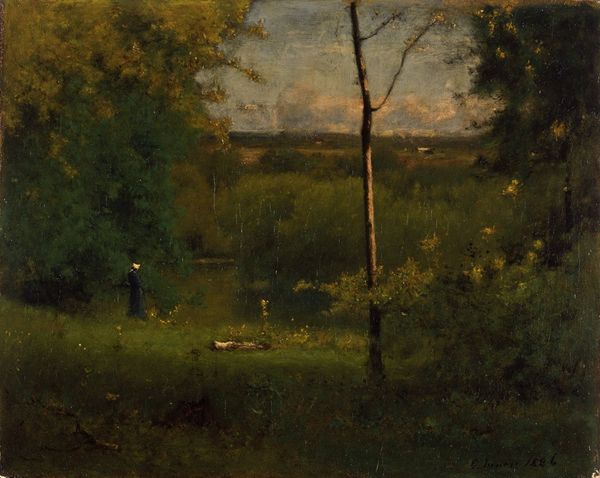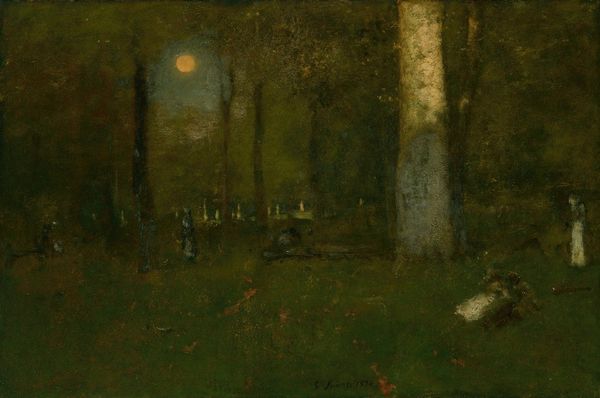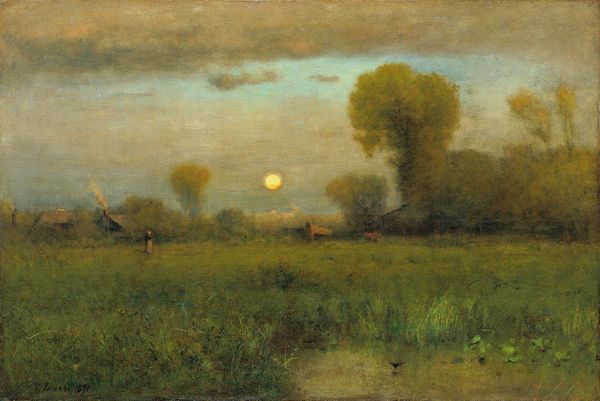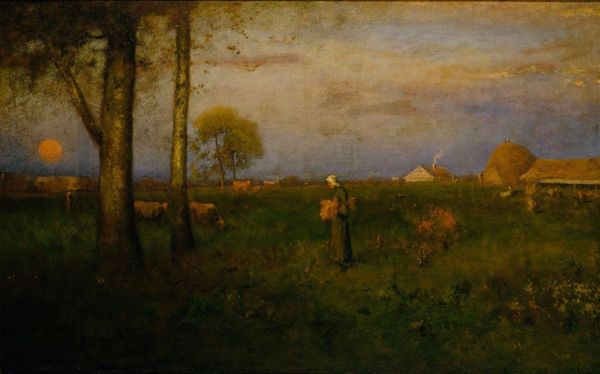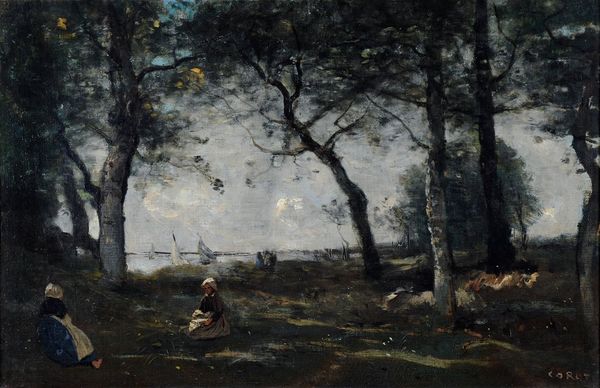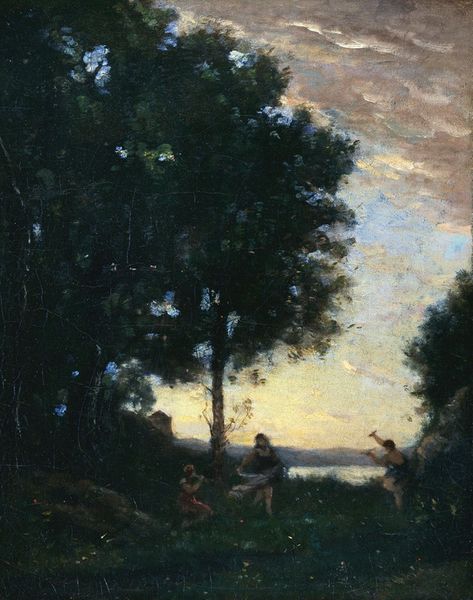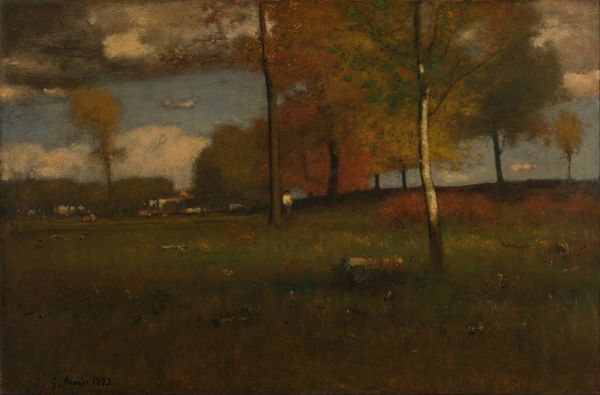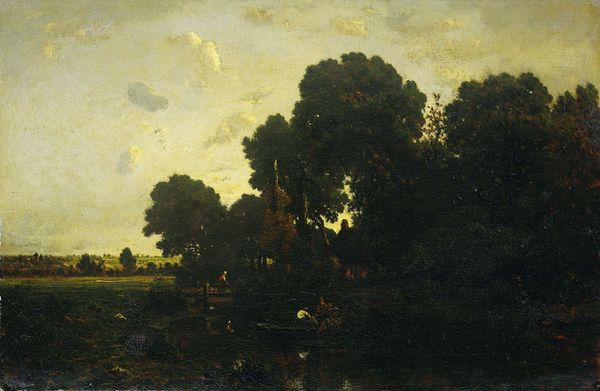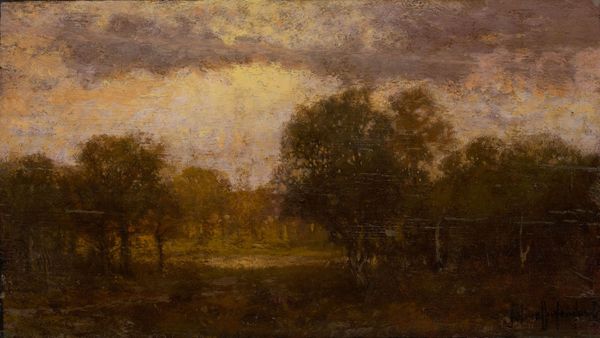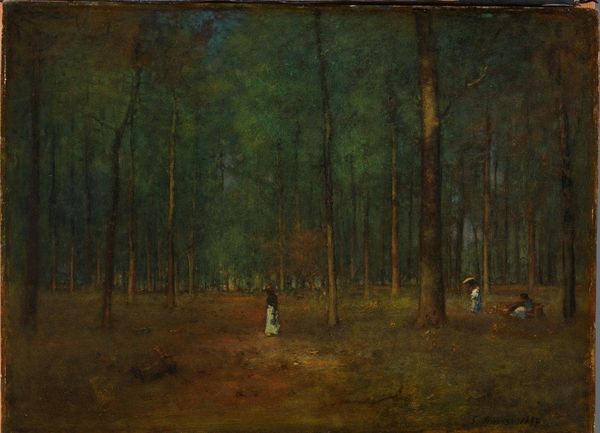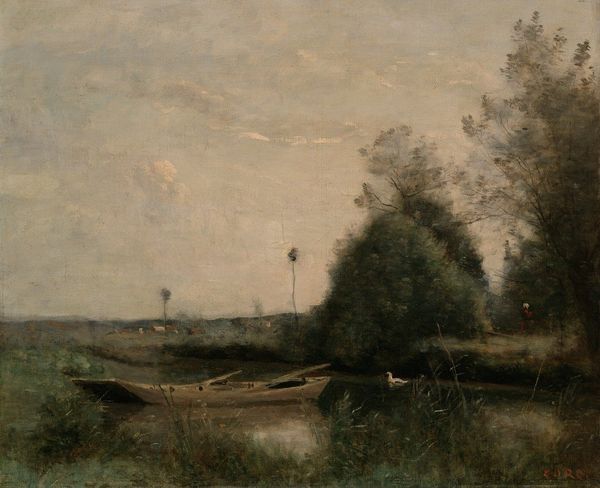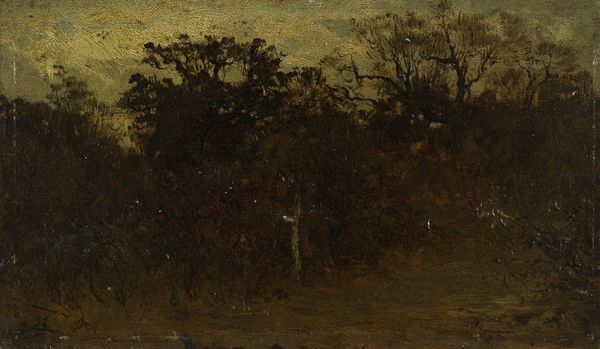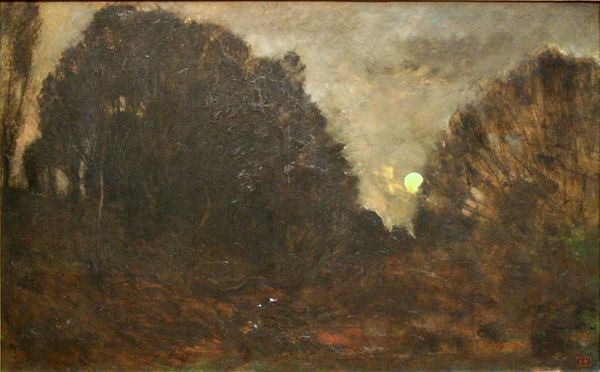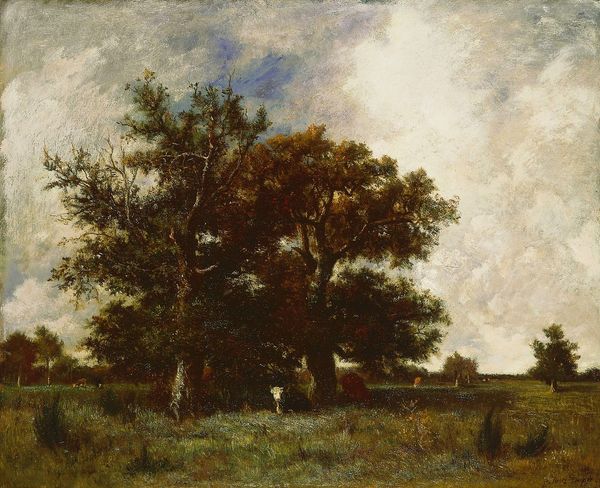
painting, plein-air, oil-paint
#
impressionistic
#
painting
#
impressionism
#
plein-air
#
oil-paint
#
landscape
#
romanticism
Copyright: Public Domain: Artvee
George Inness painted this nocturnal scene of Tarpon Springs, Florida, using oil on canvas. The subdued palette and generalized forms might suggest a purely aesthetic exercise, but Inness was deeply engaged with the social issues of his time. Painted in 1892, at the height of the Jim Crow era, this landscape subtly reflects the changing social fabric of the American South. The solitary figure of a woman, perhaps African American, walking under the moonlight evokes the isolation and vulnerability experienced by marginalized communities. The distant glow of a fire could represent resilience or perhaps hint at the burning tensions of a society grappling with racial inequality. Inness's engagement with transcendentalism and spiritualism suggests a desire to find harmony and meaning in a world marked by social division. To fully understand this work, we need to consider the history of Tarpon Springs, the demographics of its population, and the political climate of the United States during this period. Art historical research can reveal the layers of meaning embedded in this seemingly simple landscape.
Comments
No comments
Be the first to comment and join the conversation on the ultimate creative platform.
